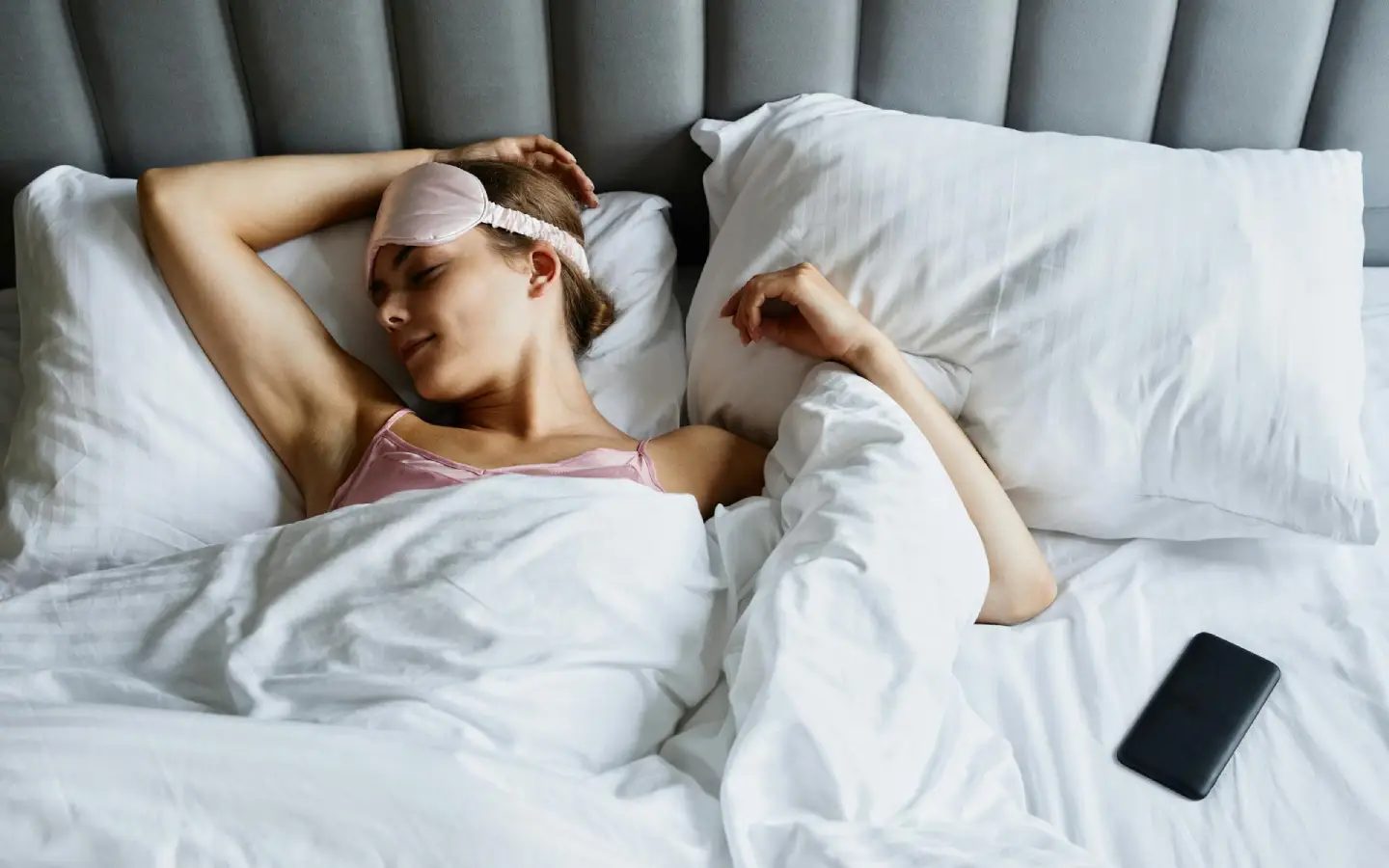May 26, 2025
What Heart Rate Variability (HRV) Tells You About Your Sleep
Heart rate variability or HRV, is one of the most useful metrics for understanding recovery, stress, and overall health, both physical and mental. It is often talked about in professional sports, mental health, and increasingly in sleep science. But despite its importance, heart rate variability is often misunderstood.
What HRV Actually Measures
Heart rate variability, or HRV, measures the variation in time between consecutive heartbeats.
Most wearable health or sleep trackers can measure HRV and usually include it as part of your nightly sleep score. Average nightly HRV in healthy adults typically falls between 50 and 100 ms (miliseconds), while professional athletes often score higher, depending on age, health, and fitness level.
It’s important to note that each person has a unique HRV range, so the most useful way to interpret your numbers is by comparing them to your own baseline over time. HRV levels during sleep reflect how your autonomic nervous system responds at night and whether your body is entering a recovery state effectively.
- A higher HRV during sleep is linked to stronger parasympathetic activity, also known as the “rest and digest” state. This means your body is recovering well, repairing itself, and processing the day’s physical and mental load.
- A lower HRV during sleep suggests stronger sympathetic activity, or a “fight or flight” state. That usually means your system is still under stress, dealing with inflammation, or being disrupted during the night.
%20Tells%20You%20About%20Your%20Sleep%203.avif)
What Causes Low HRV During Sleep
Many factors can influence HRV, but the most common causes of low HRV during sleep include:
1. Ongoing stress
When stress is not resolved during the day, it follows you into the night. Even if you fall asleep quickly, your body may still stay in a heightened state of arousal. This keeps HRV lower and can interfere with deep sleep stages like slow-wave sleep and REM sleep, where most physical repair and emotional processing take place.
2. Poor sleep environment
Noise, light, or an uncomfortable bedroom temperature can lower your HRV without waking you up fully. These small disruptions might not seem like much, but they keep your nervous system on alert and make it harder for your body to fully relax into deeper sleep.
3. Alcohol and heavy meals
Drinking alcohol before bed can lower HRV by raising stress hormones, increasing heart rate, and interfering with the body’s sleep signals. Oura notes that low HRV also suppresses melatonin and throws off circadian rhythm, which can limit nighttime recovery.
A heavy dinner can have a similar effect by keeping heart rate elevated and slowing the body’s natural cooling process needed for deep sleep.
4. Overtraining or lack of recovery
Physical training is a common reason for lower HRV. When your body is still recovering from intense physical activity, your HRV may remain low overnight. This can be a normal thing, but if HRV stays suppressed across several nights, it can indicate overtraining or under-recovery.
5. Illness or inflammation
Even minor illnesses or inflammation can lower HRV. When the immune system is active, the body prioritizes defense instead of repair, which results in a lower HRV pattern during sleep.
[CTA_INSERT]
How to Improve HRV During Sleep
To keep HRV high at night, you need to guide your body into a state where it can recover without interference. That means creating the right conditions before sleep and making small changes that help your system stay calm through the night.
Build a consistent sleep schedule
The nervous system responds well to rhythm. Going to bed and waking up at the same time each day supports stable circadian function, which helps the body shift into recovery mode more easily at night.
Create a calm pre-sleep routine
Give your system time to wind down before bed. Dim lights, reduce screen exposure, and avoid emotionally stimulating content. This tells your nervous system that it’s safe to relax, which supports a gradual rise in HRV as you fall asleep.
%20Tells%20You%20About%20Your%20Sleep%202.avif)
Limit alcohol and heavy meals before bed
Both are proven to lower HRV and reduce sleep quality. Ideally, stop eating two to three hours before sleep and avoid alcohol entirely on nights when recovery matters.
Keep your room cool, dark, and quiet
Environmental comfort is essential for parasympathetic activation. A room that feels safe and physically comfortable helps your HRV rise more naturally during the night. These are the kinds of changes you can control before sleep. But once you're asleep, you need something that can respond in real time.
That’s where Kimba comes in.
Kimba Uses HRV Data to Improve Sleep Quality in Real Time
Kimba is the first smart diffuser that uses real-time scent therapy to support your nervous system during sleep, based on the data your wearable is already collecting.
You can connect Kimba to devices like Oura, WHOOP, Garmin, Apple Watch, or any tracker synced through Apple Health. While your wearable tracks patterns like HRV, heart rate, and sleep stages, Kimba monitors those same signals for signs that your recovery might be interrupted.
When your body shows signs of stress or disruption, Kimba responds with a gentle pulse of scent that supports nervous system balance and encourages deeper, more stable sleep. The scent blends are clinically tested and formulated to work with the limbic brain, which plays a central role in regulating mood, stress, and sleep quality.
Kimba also learns from your sleep patterns over time. Its AI adapts to how your body manages recovery, improving the timing and precision of its responses each night. This helps stabilize HRV, reduce nighttime disruptions, and support more consistent, restorative sleep—especially when your system is under pressure.
Find out how Kimba supports sleep efficiency, reduces fragmented sleep, and uses your wearable data to improve your overall sleep score.
%20Tells%20You%20About%20Your%20Sleep%204.avif)
Why You Want to Track and Improve Your HRV During Sleep
When it comes to understanding how well you sleep, heart rate variability offers a layer of detail that other metrics can’t. It shows how your nervous system behaves across the night and whether real recovery is taking place. Tracking HRV during sleep helps reveal patterns that might not be obvious from time in bed or number of sleep cycles alone.
Low HRV during sleep is not always a problem on its own. It happens to everyone occasionally. But when it becomes consistent, it usually means your system is spending too much time in a stress-adapted state. That’s when sleep becomes less restorative and starts to impact how you feel during the day.
Supporting HRV while sleeping requires more than just better habits. It requires helping the body return to balance in the moment. Kimba was built for that purpose. It detects when recovery is being interrupted and activates real-time scent therapy that supports the parasympathetic system and helps prevent deeper sleep disruptions.
If your wearable shows signs of reduced sleep quality, increased restlessness, or consistently low sleeping heart rate variability, Kimba can help you take action when your body needs it most.See how Kimba works!


Continue reading

Shift Work Sleep Disorder and How To Fix Poor Sleep Quality



